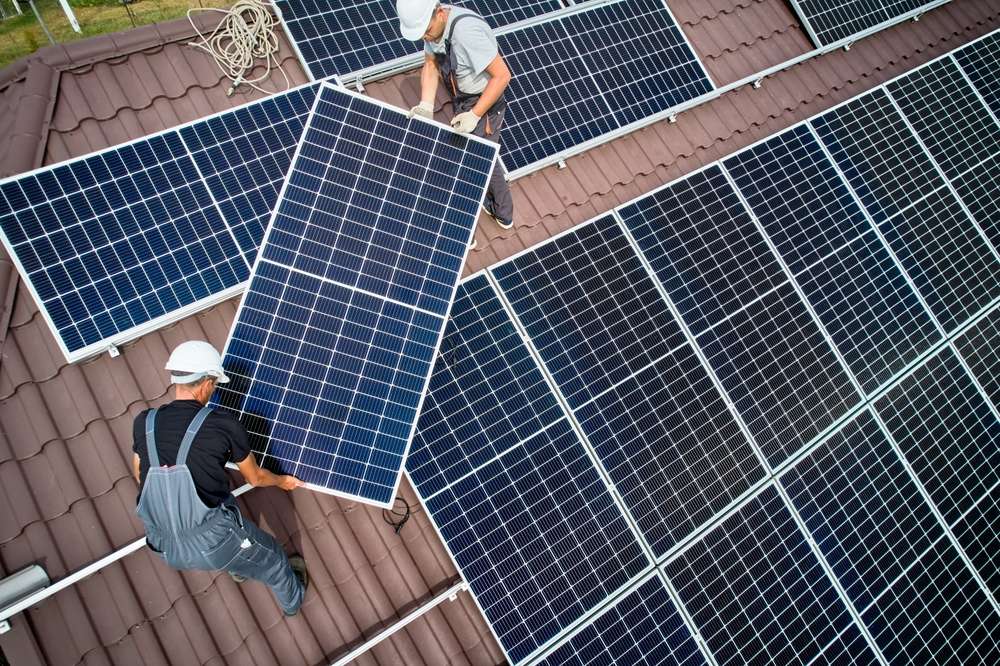Understanding Water Heaters and Boilers for Your Home
Choosing the right heating system for your home involves understanding the differences between water heaters and boilers, their efficiency ratings, and how modern technology can reduce energy consumption. Whether you're replacing an old unit or installing a new system, knowing the available options helps you make informed decisions that balance comfort, cost, and environmental impact.

What Are Water Heaters and Boilers?
Water heaters and boilers serve distinct purposes in residential heating systems, though they’re often confused. A water heater primarily provides hot water for domestic use such as showers, dishwashing, and laundry. These units heat water and store it in a tank or heat it on demand as it flows through the system. Boilers, on the other hand, heat water to provide warmth throughout your home via radiators, baseboard heaters, or radiant floor systems. Some boilers also supply domestic hot water through an integrated or separate storage tank. Understanding these fundamental differences helps homeowners select the appropriate system for their specific needs and climate conditions.
Efficient Water Heaters Guide: Types and Performance
Modern water heaters come in several configurations, each offering different efficiency levels and benefits. Tank-style water heaters store heated water in insulated cylinders, typically ranging from 30 to 80 gallons. These traditional units have improved significantly with better insulation and more efficient burners or heating elements. Tankless water heaters, also called on-demand systems, heat water only when needed, eliminating standby energy losses associated with storage tanks. Heat pump water heaters extract warmth from surrounding air to heat water, using significantly less electricity than conventional electric models. Condensing water heaters capture heat from exhaust gases that would otherwise escape, achieving efficiency ratings above 90 percent. When selecting a water heater, consider the Energy Factor rating, which measures overall efficiency including recovery time and standby losses.
Advanced Boiler Technology: Modern Heating Solutions
Today’s boilers incorporate sophisticated technology that maximizes efficiency while minimizing environmental impact. Condensing boilers represent the current standard for high-efficiency heating, capturing heat from water vapor in exhaust gases that traditional boilers release into the atmosphere. These systems achieve Annual Fuel Utilization Efficiency ratings of 90 to 98 percent, compared to 80 to 85 percent for conventional models. Modulating burners adjust flame size based on heating demand, reducing energy waste during mild weather. Combination boilers integrate space heating and domestic water heating in a single compact unit, eliminating the need for separate storage tanks. Smart controls and zone heating capabilities allow precise temperature management in different areas of your home, further reducing energy consumption. Sealed combustion systems draw air from outside rather than inside your home, improving safety and efficiency while reducing drafts.
Innovative Energy Saving Solutions: Reducing Consumption
Beyond selecting efficient equipment, several strategies can significantly reduce energy consumption associated with water heating and space heating. Proper insulation of hot water pipes prevents heat loss as water travels from the heater to fixtures, reducing the energy needed to maintain desired temperatures. Programmable and smart thermostats optimize heating schedules based on occupancy patterns, avoiding unnecessary heating when no one is home. Regular maintenance, including flushing sediment from water heater tanks and cleaning boiler heat exchangers, maintains peak efficiency. Lowering water heater temperature settings to 120 degrees Fahrenheit balances comfort with energy savings while reducing scalding risk. Installing low-flow fixtures and aerators decreases hot water demand without sacrificing performance. Solar thermal systems can supplement conventional water heaters, using free solar energy to preheat water before it enters the main heating unit. These combined approaches create comprehensive energy management strategies that reduce utility bills while maintaining comfort.
Comparing System Costs and Installation Considerations
The financial investment required for water heaters and boilers varies considerably based on system type, capacity, and installation complexity. Understanding typical cost ranges helps homeowners budget appropriately for these essential systems.
| System Type | Typical Cost Range | Key Considerations |
|---|---|---|
| Tank Water Heater | $800 - $1,800 | Lower upfront cost, moderate efficiency |
| Tankless Water Heater | $1,500 - $3,500 | Higher initial investment, long-term savings |
| Heat Pump Water Heater | $1,200 - $3,000 | Excellent efficiency, requires adequate space |
| Standard Boiler | $3,500 - $6,000 | Reliable heating, moderate efficiency |
| Condensing Boiler | $4,500 - $9,000 | Premium efficiency, complex installation |
| Combination Boiler | $3,000 - $7,500 | Space-saving design, dual functionality |
Prices, rates, or cost estimates mentioned in this article are based on the latest available information but may change over time. Independent research is advised before making financial decisions.
Installation costs depend on factors including existing infrastructure, fuel type conversion requirements, venting modifications, and local labor rates. Professional installation ensures proper sizing, safe operation, and optimal performance. Many utility companies and government programs offer rebates or incentives for high-efficiency systems, potentially offsetting initial costs. Long-term operating costs should be weighed against purchase prices when evaluating options, as more efficient systems typically recover their premium through lower utility bills over their lifespan.
Maintenance and Longevity of Heating Systems
Proper maintenance extends equipment life and preserves efficiency throughout the operational period. Water heaters typically last 10 to 15 years with appropriate care, while boilers can function effectively for 15 to 30 years depending on quality and maintenance. Annual professional inspections identify potential issues before they become costly failures. Flushing water heater tanks removes sediment buildup that reduces efficiency and causes premature tank failure. Boiler maintenance includes checking pressure levels, inspecting safety valves, cleaning burners, and testing controls. Replacing anode rods in water heaters every few years prevents corrosion that leads to tank leaks. Water treatment systems can reduce mineral buildup in areas with hard water, protecting both water heaters and boilers from scale accumulation. Homeowners should also monitor for warning signs such as unusual noises, reduced hot water supply, inconsistent heating, or visible leaks that indicate service needs.
Making the Right Choice for Your Home
Selecting between different water heating and space heating systems requires evaluating multiple factors specific to your household. Climate significantly influences heating requirements, with colder regions benefiting more from high-efficiency boilers and integrated systems. Household size and hot water usage patterns determine appropriate water heater capacity and recovery rates. Available fuel sources, including natural gas, propane, electricity, and oil, affect both operating costs and equipment options. Space constraints may favor compact combination units or tankless systems over traditional configurations. Energy efficiency priorities and environmental concerns increasingly drive homeowners toward condensing technology and renewable energy integration. Budget considerations must balance upfront investment against long-term operating costs and expected equipment lifespan. Consulting with qualified HVAC professionals provides personalized recommendations based on comprehensive home assessments and local conditions.




